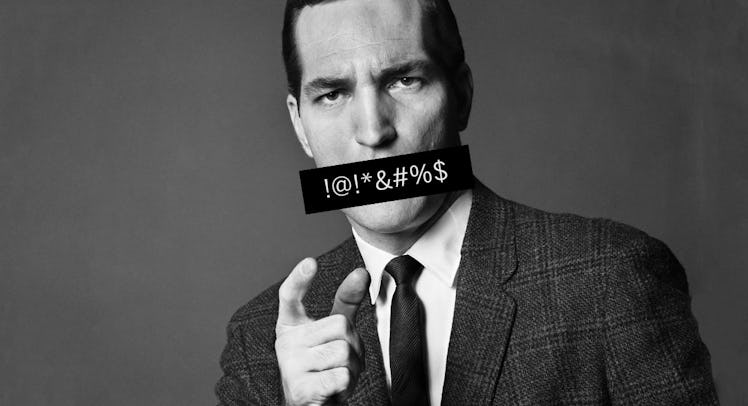When Do I Have to Stop Cursing in Front of My Infant?
Cuss words are easy for infants to learn as early as a year old. Cut that shit out as soon as possible.

Cussing requires emotion and energy. The distinct, simple, monosyllabic, curse words are easy to pronounce. They are a great way to get attention. And all of this is exactly why pre-verbal kids love them and why cursing around infants and toddlers can lead to some real fucking problems for people who don’t want to hear the echoes of their own crudeness.
“Many, many kids are typically developing their first words at a year of age and start combining words at 18 months or earlier,” says Toby Stephan of the Hanen Centre, an international organization devoted to promoting language, literacy, and social skills. “They will pick the words they hear most frequently and the words spoken with the most animation. So if you don’t want your kids to use cuss words, which is a nice goal, you would want to stop cussing before they are even a year of age.”
Kids learn swear words the same way they learn any other words: They observe, they listen, and they piece together sounds. They use non-verbal cues and context clues to figure out the meaning. If they are repeated often, a child is going to figure out the associated emotion and start trying some shit out. Habits will develop quickly.
“Changing behavior is not an easy thing to do,” says Stephan. “If your goal as a parent is to say ‘I don’t want my child to pick up these cuss words’ then you might want to start practicing that as they’re born, because it’s going to take a while to stop yourself.”
Some parents don’t cut swearing out of their vocabulary until their child has already started forming words, but that doesn’t mean it’s too late. If a child has learned a swear and has started repeating it, the best course of action is to merely ignore it.
“What quite often happens is when a child busts out a curse word, parents say ‘ooooh!’ and start laughing hysterically and such because the kid busted out a curse word,” explains Stephan. “That will get them to want to do it more. They like the attention they get from their parent. So if that child busts out that curse word, don’t react to it – it’s hard not to, but don’t. Instead, react positively when they say something you want them to say, and get in and join with them and try to take turns with them and such.”
Sure, it can be difficult to keep a straight face and ignore a toddler working blue. But ignoring is the best way to take care of it. Just be patient — it might not go away immediately. Scolding or displaying frustration won’t help speed up the process.
“I’d say, just like any other behavior approach, you reward them for the things you like and kind of ignore the things that you want to get rid of,” Stephan says.